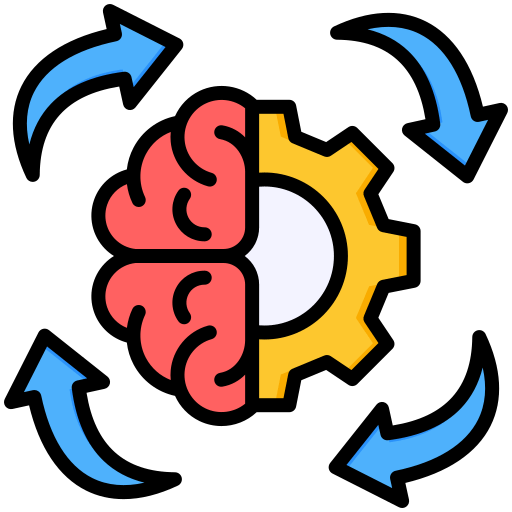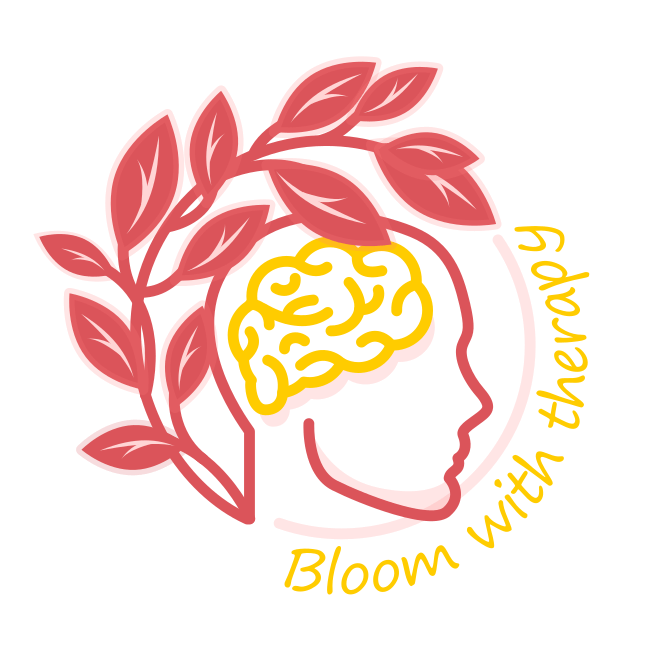"By honestly acknowledging your past errors, but never damning yourself for them, you can learn to use your past for your own future benefit."
- Albert Ellis
A structured approach that helps challenge irrational beliefs and replace them with empowering, rational thoughts.
Focuses on identifying and changing unhelpful thought patterns to build emotional resilience and well-being.
Offers practical strategies to reduce stress, enhance mindfulness, and maintain emotional balance.
Provides tools to enhance communication, resolve conflicts, and foster stronger relationships between partners.
Interactive sessions designed to teach evidence-based techniques for improving mental well-being and personal growth.
Customized support for managing workplace challenges, improving team dynamics, and fostering professional productivity.
01. Anxiety
02. Depression
03. Stress
04. Loneliness
05. Anger
06. Sleep issues
07. Relationship Challenges
08. Couples Counselling
09. LGBTQ+ Issues
10. Family Concerns
11. Self-Esteem and Body Image Issues
12. Perfectionism
13. Procrastination
14. Guilt and Shame
15. Envy and Jealousy

"Cognitive therapy teaches you to think differently, act differently, and hence feel differently." 
- Albert Ellis
Cognitive Behavioral Therapy (CBT) and Rational Emotive Behavior Therapy (REBT) are structured, evidence-based approaches that focus on identifying and changing negative thought patterns. These therapies empower individuals to replace irrational beliefs with constructive, empowering thoughts, leading to lasting change.
CBT and REBT involve identifying problematic thoughts, understanding their impact on emotions and behaviors, and actively working to reframe these thoughts. Through guided exercises and discussions, clients learn practical techniques to improve their mental health.
These therapies are highly effective in addressing issues such as anxiety, depression, phobias, and relationship challenges. They provide clients with tools to better manage their emotions and respond to life’s challenges with greater resilience.
Numerous studies have shown that CBT and REBT are among the most effective therapeutic approaches for a wide range of mental health concerns, making them a cornerstone of evidence-based practice.
You largely constructed your depression. it wasn't given to you. Therefore, You can deconstruct it. 
- Albert Ellis
Individual therapy is a collaborative process where you work one-on-one with a trained therapist to address your specific concerns, set meaningful goals, and build the skills necessary to navigate life's challenges. This personalized approach focuses on your unique needs, whether you’re dealing with anxiety, depression, stress, or issues related to personal growth.
Each session is tailored to help you explore and better understand your emotions, thought patterns, and behaviors. Techniques like Cognitive Behavioral Therapy (CBT), mindfulness practices, or solution-focused strategies may be used. Sessions often focus on:
Anyone facing mental health concerns, life transitions, or seeking self-improvement can benefit from individual therapy. Whether you're struggling with grief, low self-esteem, relationship issues, or simply want to enhance your mental clarity, these sessions are designed to support your journey.
Studies consistently show that individual therapy can significantly improve mental health outcomes. Evidence-based approaches like Cognitive Behavioral Therapy (CBT) and Rational Emotive Behavior Therapy (REBT) have proven to be effective in addressing a variety of issues.
 "The art of Love... is largely the art of Persistence"
"The art of Love... is largely the art of Persistence"
- Albert Ellis
Relationship therapy is not just for couples in crisis—it’s for anyone looking to strengthen their bond, improve communication, or navigate life transitions together. Whether you’re married, dating, or in a long-term partnership, this therapy focuses on fostering understanding, respect, and intimacy.
During sessions, couples work to:
Extensive research demonstrates that couples counseling can significantly improve relationship satisfaction. Studies show that it helps reduce conflict, improve emotional connection, and increase overall happiness in relationships.
"Worry itself is one of the most painful conditions" 
- Albert Ellis
Stress and anxiety often feel overwhelming and can affect every aspect of life, from work to personal relationships. Therapy helps individuals identify the root causes of these feelings, providing strategies to regain control and cultivate calmness.
Research supports the significant benefits of stress management interventions. Studies show that they not only reduce stress but also enhance physical health, improve sleep, and increase overall life satisfaction.
"Accept yourself as you are—even while you are striving to be the best version of yourself" 
- Albert Ellis
LGBTQ+ affirmative counselling offers specialized support for individuals navigating the complexities of sexual orientation, gender identity, or societal challenges. This form of therapy acknowledges and celebrates diversity, aiming to provide an inclusive, judgment-free environment.
Therapy provides a compassionate space where individuals can embrace their authentic selves, heal from societal challenges, and build fulfilling lives.
Research demonstrates that LGBTQ+ affirmative counselling improves self-esteem, reduces anxiety and depression, and fosters resilience. Studies reveal that inclusive and supportive therapy can lower the risks of minority stress and discrimination-related mental health challenges.
"Self-help means that you have to put in the effort. The power of your emotions and the choices you make determine how you grow." 
- Albert Ellis
Self-help workshops are interactive group sessions where participants learn and practice evidence-based techniques aimed at improving mental health and personal growth. These workshops are designed to provide individuals with practical tools for managing emotions, enhancing self-awareness, and building resilience.
Workshops cover a wide range of topics, such as stress management, mindfulness practices, emotional regulation, time management, and building self-confidence. Each workshop is designed to provide actionable insights that participants can immediately apply in their daily lives.
These workshops are ideal for individuals seeking effective mental health tools without committing to regular therapy sessions. They are perfect for those who want to gain a deeper understanding of their mental health and learn practical techniques to improve their overall well-being.
Participants leave these workshops feeling empowered, equipped with new skills, and more confident in handling life’s challenges. They also provide an opportunity to connect with others who share similar experiences, fostering a sense of community and mutual support.
Research shows that self-help workshops based on evidence-based methods like CBT, mindfulness, and psychoeducation are highly effective. Studies highlight improvements in emotional regulation, stress management, and resilience among participants. Group learning environments are shown to enhance motivation and long-term commitment to self-improvement.
"The trouble with most therapy is that it helps you feel better but leaves you unarmed for the next time life throws you a curve" 
- Albert Ellis
These programs provide in-depth knowledge and hands-on skills in evidence-based therapeutic techniques, such as Cognitive Behavioral Therapy (CBT) and Rational Emotive Behavior Therapy (REBT). They are ideal for mental health professionals, educators, and other practitioners who wish to enhance their expertise.
These programs are particularly beneficial for professionals in education, healthcare, corporate settings, and other fields that involve interpersonal interactions. Participants can use the skills gained to better support their teams, clients, or students.
The training fosters a deeper understanding of mental health, enhances communication and empathy skills, and equips participants to address emotional and behavioral challenges effectively in their respective fields.
“The best way to stay productive is to think rationally about your goals and priorities rather than being overwhelmed by pressure.” 
- Albert Ellis
The mental health of employees directly impacts productivity, team dynamics, and overall organizational success. Corporate counseling services are designed to help employees manage stress, enhance communication, and foster a healthy work environment.
Organizations that invest in mental health see significant improvements in employee morale, productivity, and retention. Employees feel more valued, leading to reduced absenteeism and a healthier, more collaborative work culture.
Studies indicate that organizations offering workplace mental health programs see a 30% improvement in employee productivity and a 25% reduction in absenteeism. Research also highlights that stress management workshops can significantly decrease burnout rates and improve job satisfaction.
"The greatest sign of success for a teacher is to be able to say, ‘The children are now working as if I did not exist." 
-Maria Montessori
Mental health plays a crucial role in a student's academic performance, social interactions, and overall developement. counselling services in schools aim to address the unique challenges faced by students, teachers and staff, creating a healthier and more supportive learning environment.
These programs include individual counselling for students, workshops for teachers on stres smanagement and effective communication, and group sessions focused on building resillience and emotional intelligence. Customized approaches ensure that each school's specific needs are met.
Students gain tools to manage stress, build self-esteem, and navigate peer relationships, while teachers benefit from enhanced communication skills and reduced burnout. Schools that prioritize mental health see improved academic performance, stronger teacher-student relationships, and a more positive school culture.
By addressing mental health proactively, schools can foster a supportive community that encourages personal growth and academic success.
